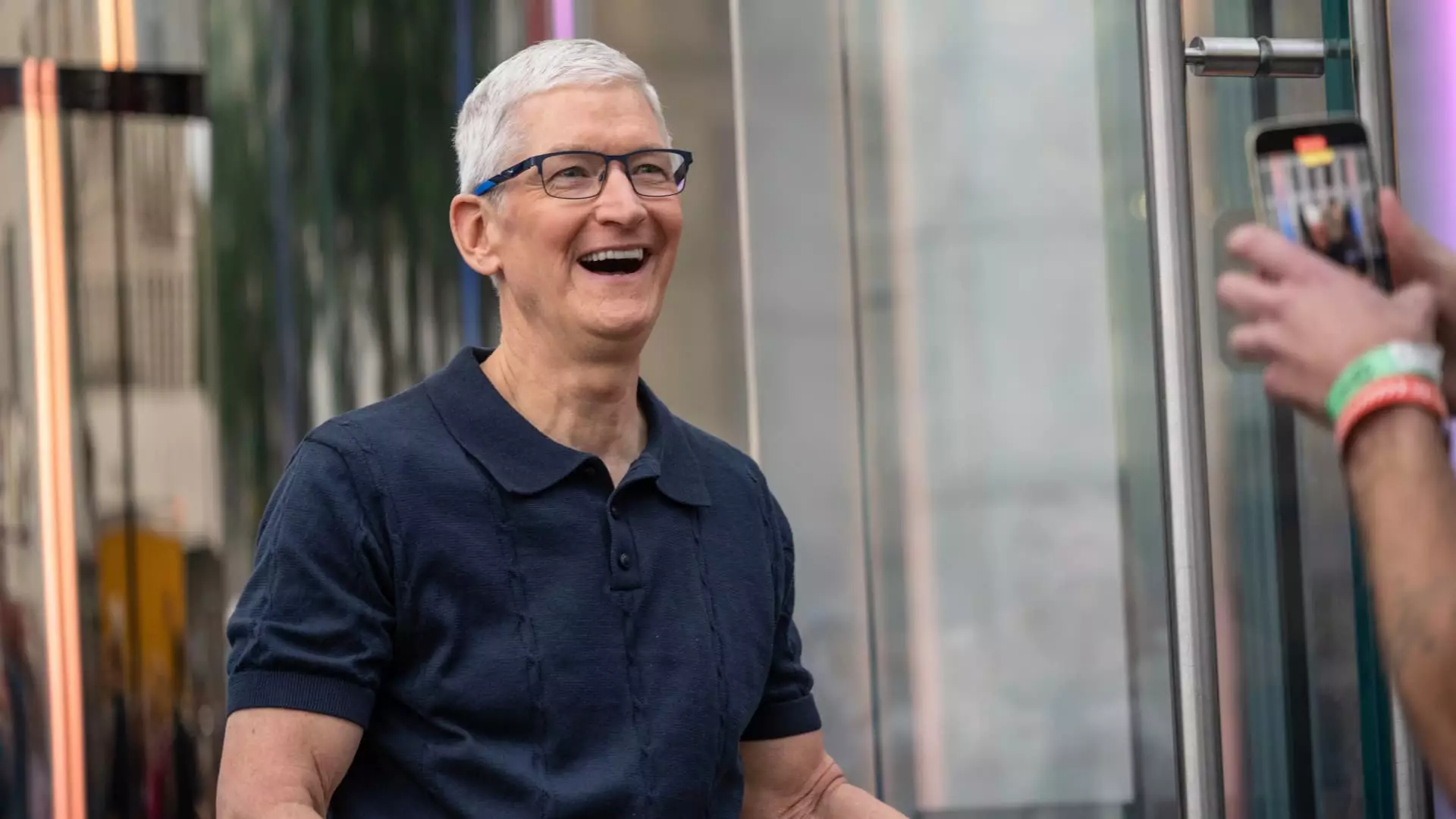Apple Inc. has made headlines with its announcement of a colossal $500 billion investment in the United States. This ambitious financial commitment aims to bolster not only the company’s infrastructure but also the nation’s standing in the global technology arena. A cornerstone of this investment is the establishment of a state-of-the-art artificial intelligence (AI) server manufacturing facility located in Houston, Texas, encapsulating the tech giant’s long-term vision for enhancing its AI capabilities.
The new facility, spanning an impressive 250,000 square feet, is set to become operational by 2026. It is intended to support Apple’s own AI projects, including advancements in its intelligent personal assistant, Siri, available on devices such as iPhones, iPads, and Mac computers. This move significantly underlines Apple’s intent to strengthen its position in the rapidly advancing field of AI, particularly as discussions around domestic manufacturing grow increasingly significant.
In conjunction with the factory’s launch, Apple announced plans to recruit approximately 20,000 new employees across various roles in the U.S. This endeavor aligns with broader trends of creating domestic job opportunities and reversing some outsourcing trends that have characterized the tech sector for decades. Most notably, the new roles will focus on areas such as research and development (R&D), silicon engineering, software development, as well as AI and machine learning.
Apple’s CEO, Tim Cook, expressed cautious optimism about the future of American innovation during a recent statement. His comments reflect a corporate ethos that underscores the importance of investing in local talent and fostering home-grown expertise in cutting-edge technology fields. The conspicuous emphasis on R&D positions not only indicates the company’s commitment to innovation but also hints at its need to leverage American ingenuity to sustain competitive advantage.
The strategic decision to invest heavily in U.S. manufacturing comes at a time when Apple faces heightened scrutiny over its supply chain practices. Historically, a vast majority of Apple products have been assembled in China, a factor that has drawn criticism from various quarters, including the former Trump administration. Recent tariffs imposed on Chinese imports further complicate the landscape, nudging companies to reconsider their international manufacturing strategies.
The timing of Apple’s commitment also coincides with a crucial meeting between Tim Cook and President Trump, wherein manufacturing and American jobs were key talking points. This convergence suggests that Apple is taking proactive steps to align itself with national interests, potentially to mitigate any political backlash that could arise from its reliance on foreign manufacturing.
Apple’s investment strategy is multifaceted and extends well beyond the Houston factory. The company plans to allocate funds toward expanding its Advanced Manufacturing Fund, which will double to $10 billion, and establish a new manufacturing academy in Michigan. This expanded initiative not only aims to facilitate domestic manufacturing but also focuses on educating the future workforce needed to support these evolving technologies.
Moreover, Apple intends to channel resources into producing original content for its streaming service, Apple TV+, across multiple states. This push reflects a recognition of the intersection between technology and media, reinforcing Apple’s desire to become a key player in various sectors.
It’s also worth noting Apple’s heavy contributions to the U.S. economy, as highlighted by its tax payments exceeding $75 billion over the last five years, including a remarkable $19 billion in 2024 alone. As one of the largest taxpayers in the country, Apple positions itself as a corporate citizen committed to uplifting American industry and furthering local business environments.
Apple’s recent announcements signify more than just a financial investment; they project a renewed commitment to American innovation, job creation, and technological advancement. As the company navigates the complex interplay of domestic and global markets, its actions herald an important shift in how technology firms approach manufacturing and development in the United States. Through this substantial investment in AI infrastructure, Apple is not only profoundly influencing its operational framework but also aiming to set a precedent for the broader tech industry.

Leave a Reply